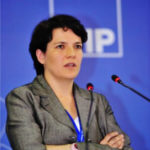White Paper on Energy-efficient buildings as job-creation motor
The White Paper on Energy-efficient Buildings as Job-creation Motor identified jobs at risk in the construction sector and considered reskilling strategies considering new job opportunities arising within the scope of the clean energy tr...
The White Paper on Energy-efficient Buildings as Job-creation Motor identified jobs at risk in the construction sector and considered reskilling strategies considering new job opportunities arising within the scope of the clean energy transition. The white paper should touch upon the gender dimension, aspects of societal transformation as well as European policy recommendations and instruments focusing on skills and just transition.
Topics:


